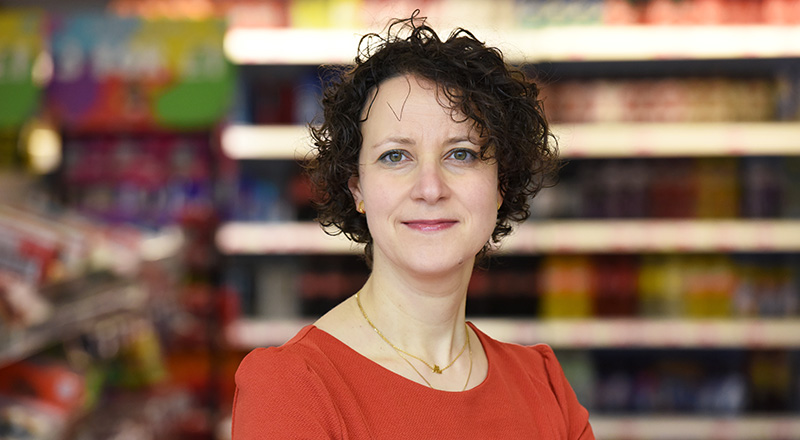Exploring the public health impact of COVID-19 on the food takeaway landscape
Relaxed measures which made it easier for businesses to trade as takeaways during the COVID-19 pandemic did provide vital support, but also led to issues around food hygiene and waste, new research has found.

A team led by Teesside University academics has been working with Public Health England to analyse the effect COVID-19 had on the North East food takeaway industry.
Dietary habits changed drastically during the pandemic, with many people turning to takeaway food as cafes and restaurants shut during lockdowns.
And changes to legislation also made it much easier for businesses to provide takeaway food.
A research team from Teesside University and Newcastle University collaborating through Fuse, the Centre for Translational Research in Public Health, worked with Public Health England (now the Office for Health Improvement and Disparities) to explore the extent to which COVID-19 impacted the takeaway landscape.
In March 2020, the government introduced temporary legislation which enabled food establishments to trade as takeaways beyond the ancillary basis without applying for planning permission in an effort to sustain the economy and support local businesses.
While the relaxed measures provided support for businesses and enabled them to continue trading during challenging times, research found that they also led to issues around hygiene, food waste and capacity as local authorities struggled to identify businesses which were operating a takeaway service.
Teesside University’s research team worked with public health professionals, environmental health officers and planners from across the North East region to examine the public health issues associated with the temporary legislation changes.
They found that while most businesses did not inform their local authority that they were trading as a takeaway, this was considered a low priority due to the circumstances.
Local authorities did raise several concerns about the consequences of the legislative changes.
Food hygiene was identified as a concern as there was simply too much going on which authorities were not aware of, and some businesses were diversifying without the necessary skillset.
It is clear that the pandemic led to an unprecedented demand for takeaway food and the changes in legislation made it much easier for businesses to diversity and trade under different circumstances.
Having the necessary insurance to do food deliveries was also highlighted as a concern, as were issues around food waste.
Many of those interviewed expressed issues with capacity due to the demand on the takeaway trade during the pandemic.
And it was clear that, even though takeaways were in high demand, many still viewed them as particularly unhealthy options – high in fat, sugar and salt.
Professor Amelia Lake, from the University’s School of Health & Life Sciences and Associate Director of Fuse, the Centre for Translational Research in Public Health, led the research.
She said: “It is clear that the pandemic led to an unprecedented demand for takeaway food and the changes in legislation made it much easier for businesses to diversify and trade under different circumstances.
“We have been looking at the longer-term impacts of these changes and how they may have impacted public health.
“People still view takeaways as an unhealthy option, but during the pandemic dietary habits changed dramatically.
“This has given us important insight and does suggest that making it easier for businesses to trade and move to takeaway options does not come without risk and can have long-lasting public health outcomes.”
Professor Amelia Lake, Dr Helen Moore, Dr Claire O’Malley, Dr Nicholas Gray and Callum Bradford from Teesside University’s School of Health & Life Sciences contributed to the research, which was published by SAGE Journals, in collaboration with Public Health England (now OHID) and Newcastle University.
In the News
Why takeaway hygiene is harder to keep track of after covid-19 lockdown
Coventry Telegraph, Web, 15/10/2022
A team led by Teesside University academics has been working with Public Health England to analyse the effect COVID-19 had on the North East food takeaway industry.
Why takeaway hygiene is harder to keep track of after covid-19 lockdown
Gazette Live, Web, 15/10/2022
Teesside University's research team worked with public health professionals, environmental health officers and planners from across the North East region.
Why takeaway hygiene is harder to keep track of after covid-19 lockdown
Belfast Live, Web, 15/10/2022
Rules over monitoring the running of takeaways were changed during the pandemic.
Exploring the public health impact of COVID-19 on the food takeaway landscape
North East Connected, Web, 26/09/2022
Relaxed measures which made it easier for businesses to trade as takeaways during the COVID-19 pandemic did provide vital support, but also led to issues around food hygiene and waste, new research has found.
Exploring the public health impact of COVID-19 on the food takeaway landscape
Fuse, Web, 23/09/2022
Fuse academics has been working with Public Health England to analyse the effect COVID-19 had on the North East food takeaway industry.
The impact of Covid-19 on the regional food takeaway scene
Northern Echo, Web, 22/09/2022
A team led by Teesside University academics has been working with Public Health England to analyse the effect COVID-19 had on the North East food takeaway industry.
 Groundbreaking project to unlock nuclear energy's role in
...
Groundbreaking project to unlock nuclear energy's role in
... Start the new year by expanding your knowledge
Start the new year by expanding your knowledge  Teesside University strengthens long-standing partnership
...
Teesside University strengthens long-standing partnership
...